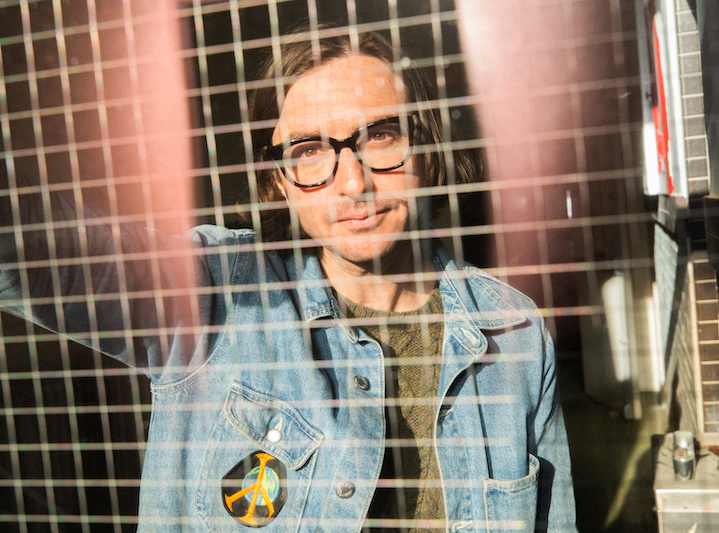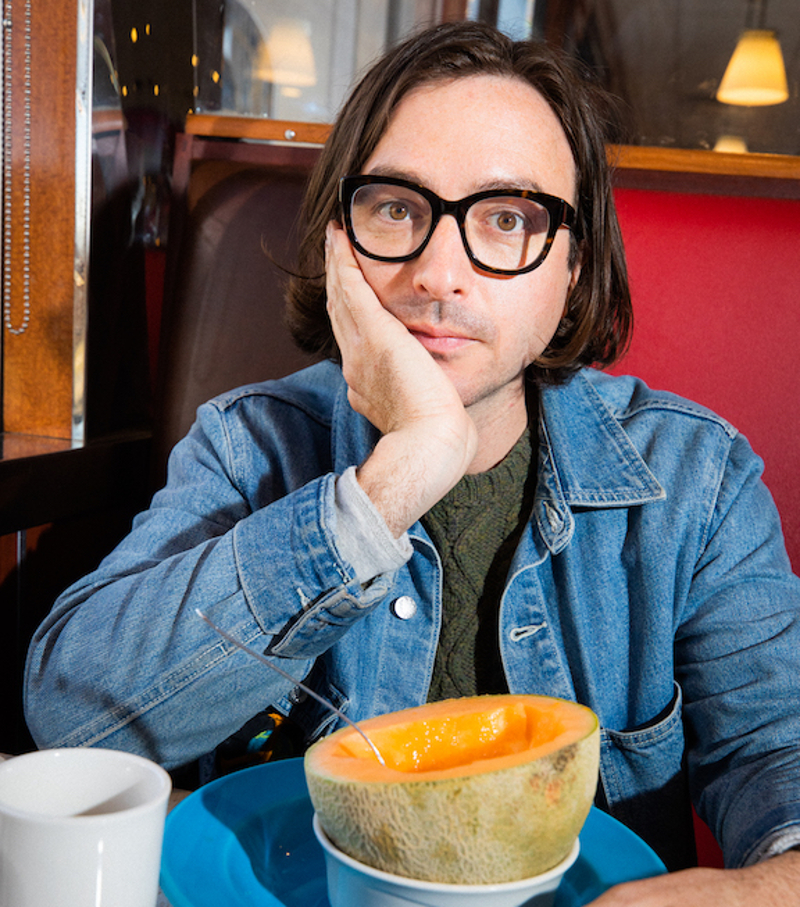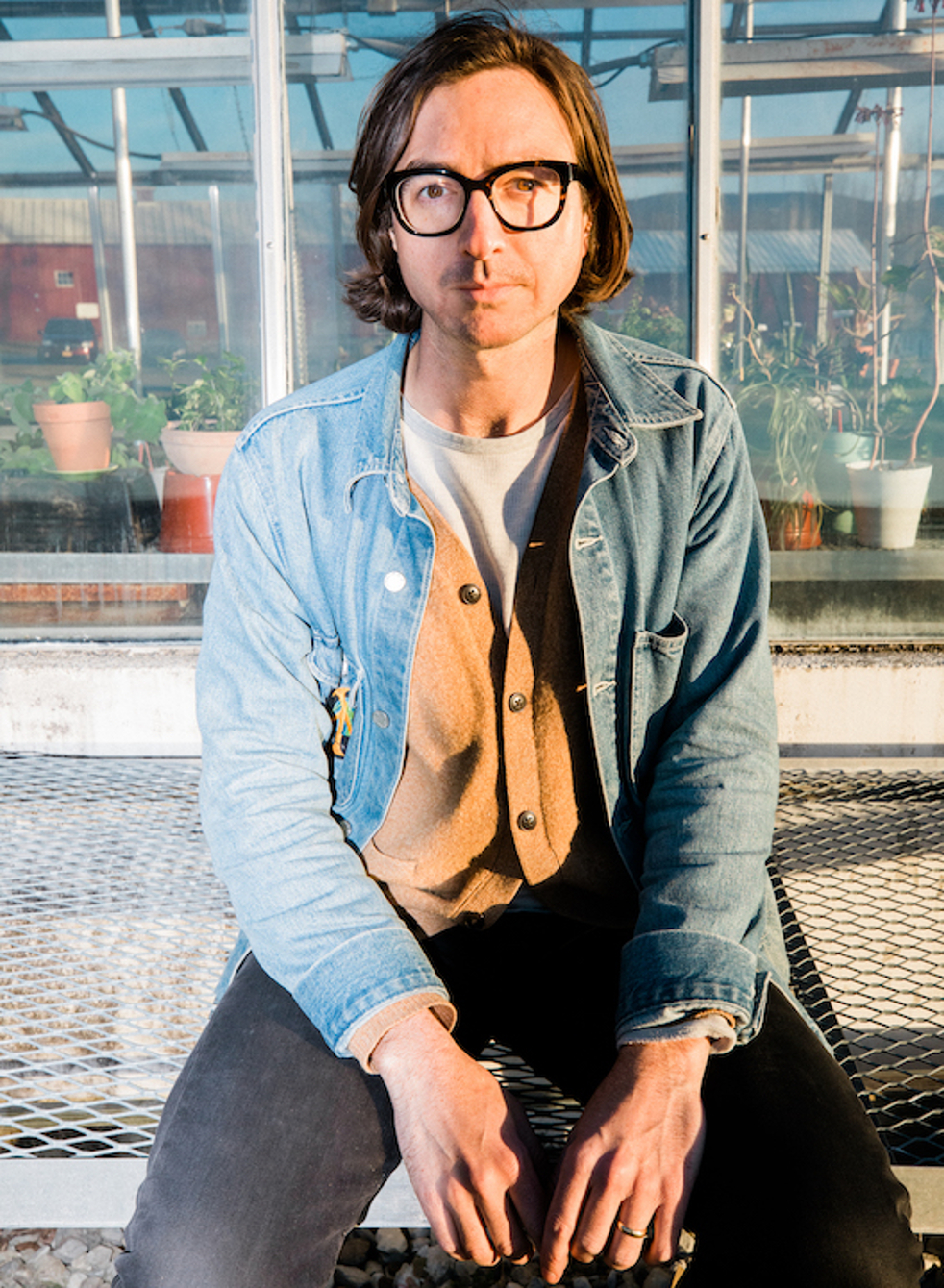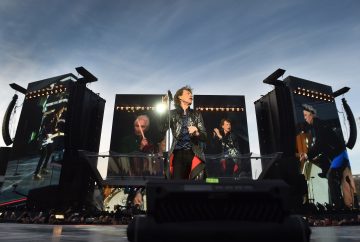
Martin Courtney, frontman of Real Estate, is releasing his second solo album later this month. We spoke to him about the project, now seven years on from his first individual effort.
Frank Sinatra had a cold. Martin Courtney has Covid – not that the old common cold can remotely compare to Covid-19. Nonetheless, it’s the first time Courtney’s got the virus and he doesn’t feel too good, nor share my sentiment that if you’re going to live through this whole pandemic lark, you may as well catch it once. “I made it so far,” he chuckles. “I was retaining the notion that maybe I was immune or something.”
Courtney is best known as the lead singer of New Jersey indie-rock band Real Estate. The band have achieved acclaim for their crisp, soothing, seemingly effortless sound, and in February 2020, their fifth studio album, The Main Thing, arrived. Days later, well you know what happened – the world turned on its head and Real Estate’s music went out “into a vacuum”, as Courtney puts it.
Over the next two years – spent affected by, but not until now infected with, coronavirus – Courtney wrote and recorded a solo album, now seven years after his first. Magic Sign is out on June 24 and sees Courtney looking back at a time not just before the pandemic, but before Real Estate, as well as trying to inject a bit of positivity into a still amorphous future.
One of Magic Sign’s themes – as its title suggests – is the road signs that navigated Courtney’s stoned, teenage self around the backroads of suburban New Jersey. Looking back at his late teens is nothing new for Courtney, and not a wistful luxury reserved for solo projects, but it’s what he enjoys writing about. “I was singing about the good old days even on the first Real Estate album,” he jokes.
Speaking to him from his upstate New York home, sniffling slightly, in front of a navy wall adorned with guitars, Courtney talks in great detail about Magic Sign, the ups and downs of releasing a solo project, and how now, with fatherhood, he’s come full suburban cycle.

Image Credit: Sinna Nasseri
So how does it differ, making a record by yourself?
It’s very different, but whenever I’m making a record, the initial process is pretty much the same. I always record demos, that’s how I write songs. Recording them as I go helps me define what the song is in my head and it helps me write lyrics when I’ve got something to listen to. But a lot of the time with Real Estate, I’ll leave the demos a little less fleshed out and leave room for people. Then we’d get together and work them out as a group. Some of the times my ideas would stay in there and other times things they would d change drastically from what I thought they were going to be.
I would say the process with Real Estate is both gratifying and can be frustrating in a way, because you end up making a lot of compromises. That’s kind of what it is to be in a band and that’s also the beauty of being in a band. You end up with results that you could never have imagined and I’m always really happy with the end product, because it’s a group of musicians who I very much respect and love to work with. But [Magic Sign] was taking that process and just removing all the frustration – doing anything that I want, which is fun.
I initially thought I would play everything on the record, other than the drums. I had Matt Barrick, who used to be in the Walkmen, who played the drums, and I was like, ‘Okay, I’ll do the initial tracking with Matt, and then I’ll go home and just record at my house and finish the record at my house, and send it to somebody to mix because I don’t really trust myself to mix.’
So that was my initial goal and I thought it’d be what differentiates this – I’ve never actually released something where I play all the instruments… other than the drums. This record ended up being about 90 per cent that, but it got to a point where I hit a wall. Certain songs felt more done than others and I needed to bring in other musicians. That’s where the pedal steel came in and Kasey Johannsing sang back-up vocals. I realised this record needed more than just my own voice.
Was it always the plan to release another solo album, or was that something that was brought on by the pandemic?
I mean, I kind of always thought I might, but there was no plan to do it. Obviously, when all is said and done, it will have been seven years between solo records. I started working on this in 2020, but even that, five years feels like a long time. It was always in the back of my head that I could, and I guess the pandemic provided the opportunity to do it.
New Jersey, New York… the pandemic. You can hear it clearly on ‘Corncob’ (Magic Sign’s first song), but how much does your surroundings continue to shape your music?
I thought it was funny, a lot of the lyrics on this record are a stream of consciousness. I was just trying to not really think too hard about them. I didn’t really want to think too hard about any part of the process of making this record.
‘Corncob’ is for sure about growing up in the suburbs in New Jersey though. And it’s funny, because I have a lot of songs that are about that and I didn’t really think about it when we picked it as the first single. I mean, I stand by the decision, but it’s funny because I did see a few people commenting, ‘Does this guy write about anything else?’ I felt a little self conscious about it, but you know, it is what it is and I’m not gonna stop myself from writing what feels comfortable or what I want to write about.
But my surroundings definitely influence my lyrics. My surroundings these days are very much just taking my kids to school and picking them up and just living, I guess, back into suburban life. At the other end. I’m just a dad.
And I understand most of it has been written and recorded during the last 24 months. Did that force you to look back more or did it make you look forward more… a ‘post-pandemic’ world?
I was writing the songs not really knowing what I was going to do with them. Real Estate put a record out right before the pandemic and then obviously we couldn’t tour. Everything got thrown up in the air and, and it was very confusing. So I just started writing a bunch just to stay busy and stay sane.
The initial idea was maybe in the fall, Real Estate could get together and make another record – you know, let’s not waste time. [The Main Thing] came out and we couldn’t do anything with it so let’s just make another record right away. But obviously, as the pandemic dragged on, we all live in different parts of the country and it was becoming increasingly obvious that it was going to be really hard for us to get together anytime soon.
And even if we could, we probably weren’t gonna be able to tour. It takes a lot of effort to make a Real Estate record, logistical things need to happen and, and to put all that work into it, to then again not be able to give it a full treatment… I just didn’t want to do that again. But I also didn’t want to just sit on these songs. So I was like, I’ll make a solo record.
The whole time I was writing, though, I was thinking, ‘Hopefully, this record will emerge in a happier time for the world, after the pandemic, a more hopeful time.’ I was feeling confused and sad and you know, all those feelings of the pandemic were happening. I was trying to write passed that and not think about that and it definitely makes its way into the record.
And there’s also other forms of anxiety – climate change definitely makes its way into the record. But I think overall, I was trying to make a record that felt more positive – just for my own sanity, and also for this amorphous, undefined happy future.

Image Credit: Sinna Nasseri
You’ve talked about driving through the suburbs, trying to get lost, but how if you do it enough times, it’s harder and harder to get lost – that idea of exhausting the mystery. I suppose this is a slightly leading question, but have you ever found that with music? Being in a band and releasing the music under one act, when there is this opportunity for another?
I mean, I would say… yes. Part of the reason I did this was because I was wanting a change, especially after The Main Thing. It was such an anticlimax. We all worked harder, or at least longer, on the last Real Estate record than we’ve ever done on any other record. We’d put all this effort into this record and it felt like this big statement. It felt like our best album, which may or may not be true in the end, but the idea that we’re really gonna leave it all on the table here, put ourselves into this album. And then, you know, it came out.
I’m proud of the record, but it definitely felt like we just released it into a vacuum. Not having that opportunity to play shows, and share it with people in the real world, you wouldn’t think that it matters, but I guess it does. [Magic Sings] is definitely a reaction to that. I didn’t want to do that again, at least not right away. It was just too hard to deal with. So I was like, I’m just gonna do something fun, from the amount of frustration that came out of that last Real Estate record.
Yeah, you alluded to it before, how you got to about 90 per cent of it done. Did it challenge you in a way a band project never could?
Yeah. Because often with the band, I can just leave spaces open. I’m like, ‘Alright, Julian’s gonna fill this up,’ or, ‘Oh, this needs a keyboard part but I can’t play it, so Matt will do it.’ I could be a bit more hands off. I think with the earlier Real Estate records, I was more hands on and I did have more of a hand in the arrangements.
And then as the band coalesced, because the lineup changed a lot early on, so as it became has now been a pretty solid lineup for a few years, though we do now have a new drummer, but still it’s this really solid group of musicians. So I’m going to kind of step back from being so kind of involved in every aspect of the music making. In some ways that felt good, but I started to miss that.




